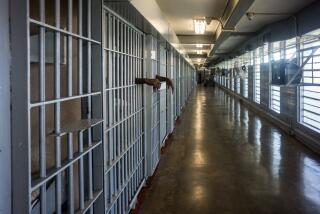Justice by Jury Is a Myth : Law: Lay people are no match for crafty lawyers, irrational procedures and unintelligible instruction from the bench.
- Share via
Speculation is rampant about O. J. Simpson’s chances at the hands of a jury. But the debate over fairness, pretrial publicity, celebrity and so on misses the point. It is an enduring and profound truth that juries have never been reliable vehicles for the equitable resolution of trial court disputes. Here’s why:
* The American lay jury is a howling anachronism. Originally effective during colonial times as a bulwark against the judges appointed by England, the jury today has become a pawn in the hands of skilled and well-financed litigators. As modernity brings us more complexity, continued use of the lay jury for many litigated disputes is dysfunctional. Uninformed and unjust decisions result.
In what other problem-solving endeavor would we rely exclusively on people with virtually no expertise in or firsthand knowledge of the matter to be resolved? This reaches the height of irrationality when we ask lay people to judge the testimony of expert witnesses in scientific and technological fields.
* The law abides the paradox of jury lawlessness. This phenomenon, also known as jury nullification, is unique to American law. Initially, jurors are sworn to obey the judge’s legal instructions. Yet in deliberations, the power of jurors to ignore the law is inviolable, defended by pillars of the bench and bar alike.
* The adversary and jury systems combine to deliver a witch’s brew of trial justice. For years, crafty attorneys have prevailed, in contravention of the merits of their cases, by plying myriad forensic tricks and pandering to the basest of juror emotions. Not only does the legal profession condone these tactics, it also instructs in their use through law school courses and practitioner seminars. In a survey of Los Angeles jurors I conducted in 1988 (the largest in the United States), more than one-third believed that the outcome of the cases they sat on had been dictated by a disparity in skills between the opposing attorneys.
* Disparate financial resources between litigants skew jury trial results. The wealthier the litigant, the better the available legal representation. I refer not only to better attorneys, but also to more persuasive expert witnesses, and to litigation support services that help to “scientifically” select the most favorably disposed jurors. These factors influenced the first Rodney King case, the William Kennedy Smith rape case and the Bobbitt, Menendez and Damian Williams cases.
* Antediluvian procedural rules cripple even elemental jury fact-finding. While the law reposes the most solemn obligations upon the jury--determination of guilt or innocence in criminal cases; assignment of rights, duties and damage awards in civil cases--it denies jurors basic independent fact-finding tools. Most courts, for instance, forbid jurors to ask questions, take notes or see a transcript of the testimony. I call this the jury idiot savant syndrome.
* Most judicial instructions are worthless. Rather than explain or clarify the law, the judge’s instructions usually confound the jurors with jargon-laden, incomprehensible language--worded to avoid appellate reversal, not to guide jurors. Consequently, jurors commonly deliberate and vote in ignorance of the law as given from the bench, referring instead to their personal values and biases, or succumbing to the emotions evoked by attorney pandering.
Bad jury verdicts--those abrasively inconsonant with both the law and common notions of justice and decency--are not the product of some misguided new morality, but rather are and have always been endemic to our jury system. They will continue so until the system is reformed.
Needed reforms would first remove complex and technical cases from juries, and then empower juries in the remaining cases. Engaged jurors are more effective jurors. Allow them to ask questions and take notes. In deliberations, permit them to retrieve from computers any part of the transcribed testimony or the judge’s instructions. Use neutral instead of partisan expert witnesses. Above all, reword instructions so that if jurors want to follow the law, they can actually understand it.
More to Read
Sign up for Essential California
The most important California stories and recommendations in your inbox every morning.
You may occasionally receive promotional content from the Los Angeles Times.









